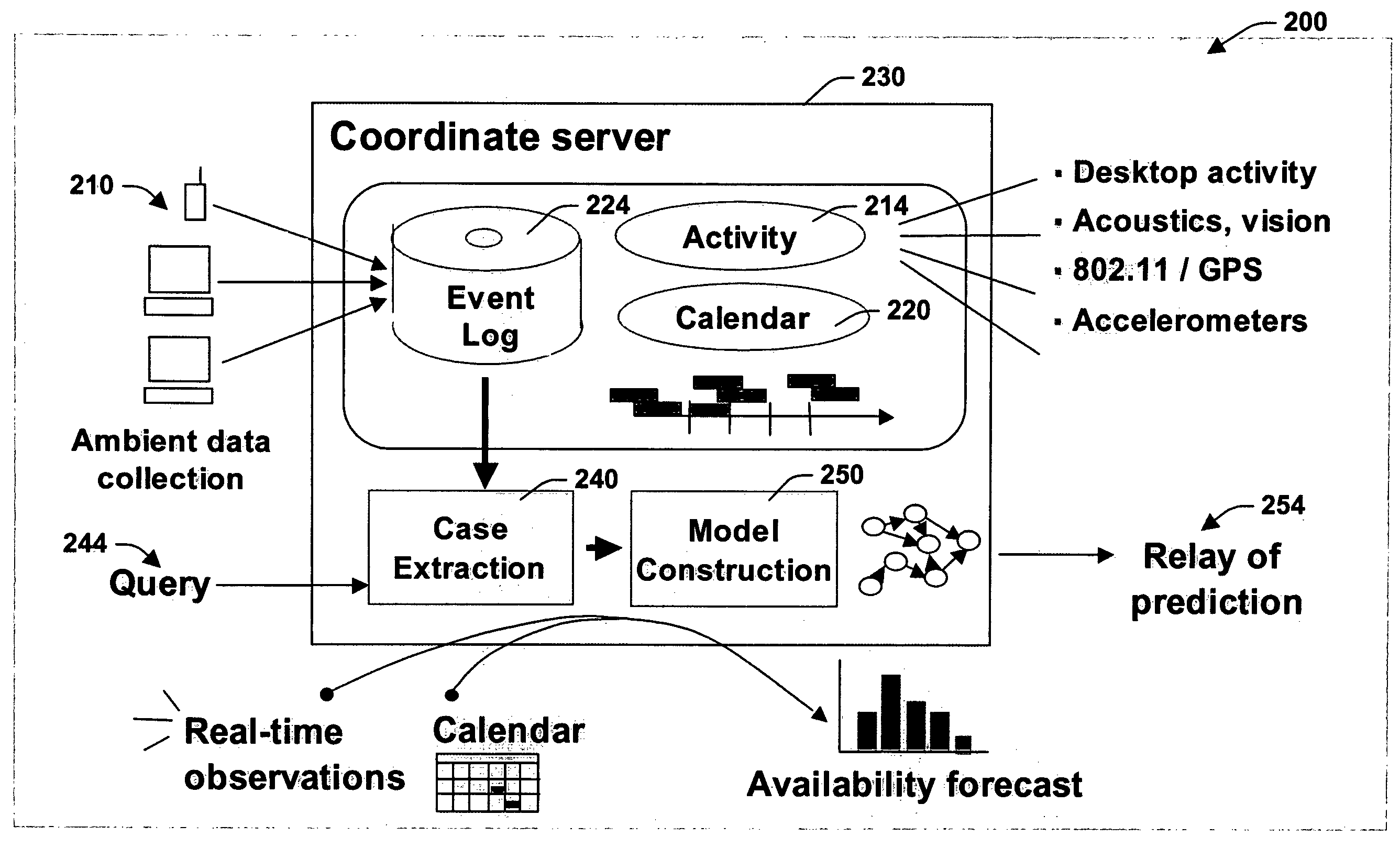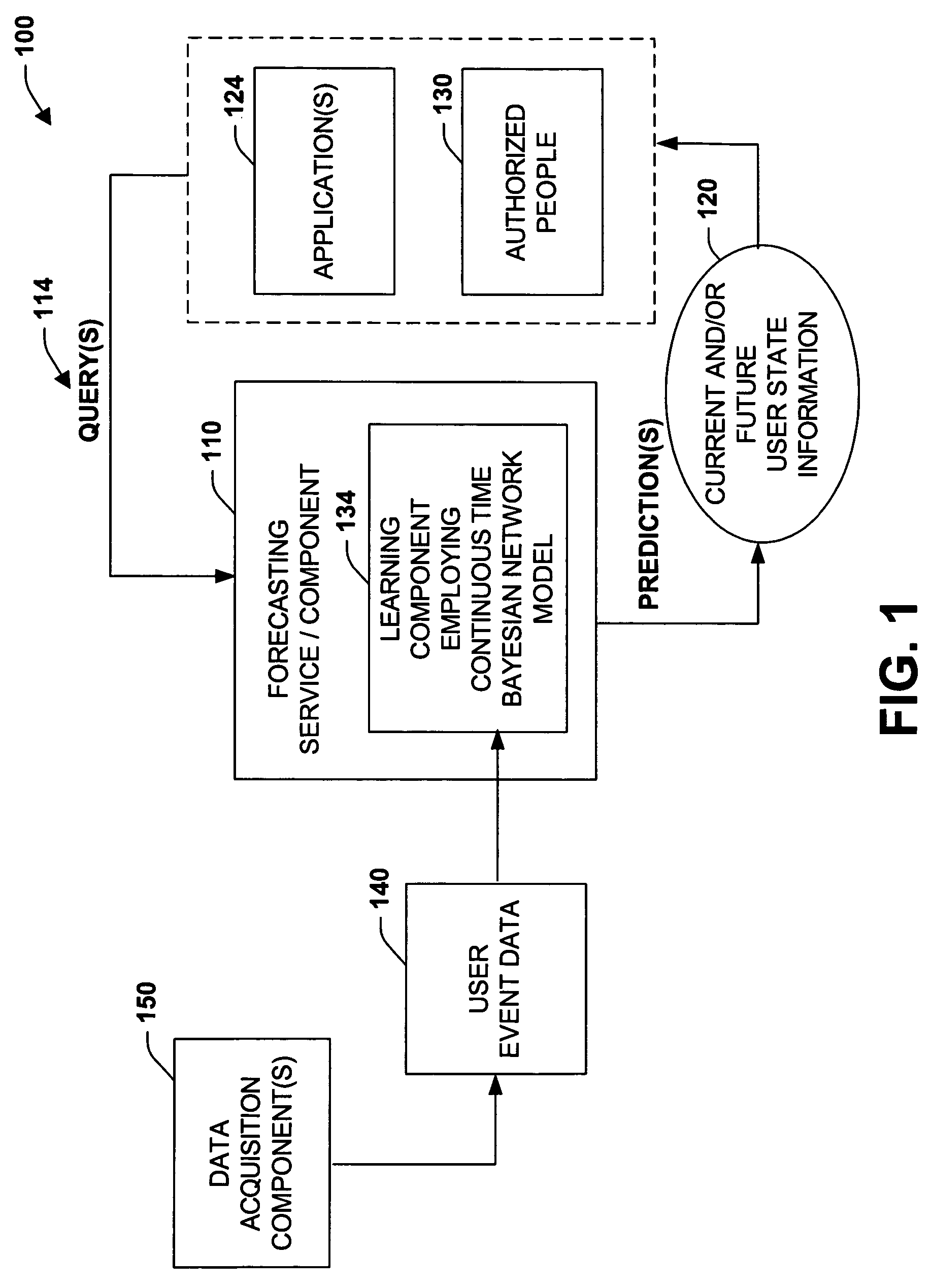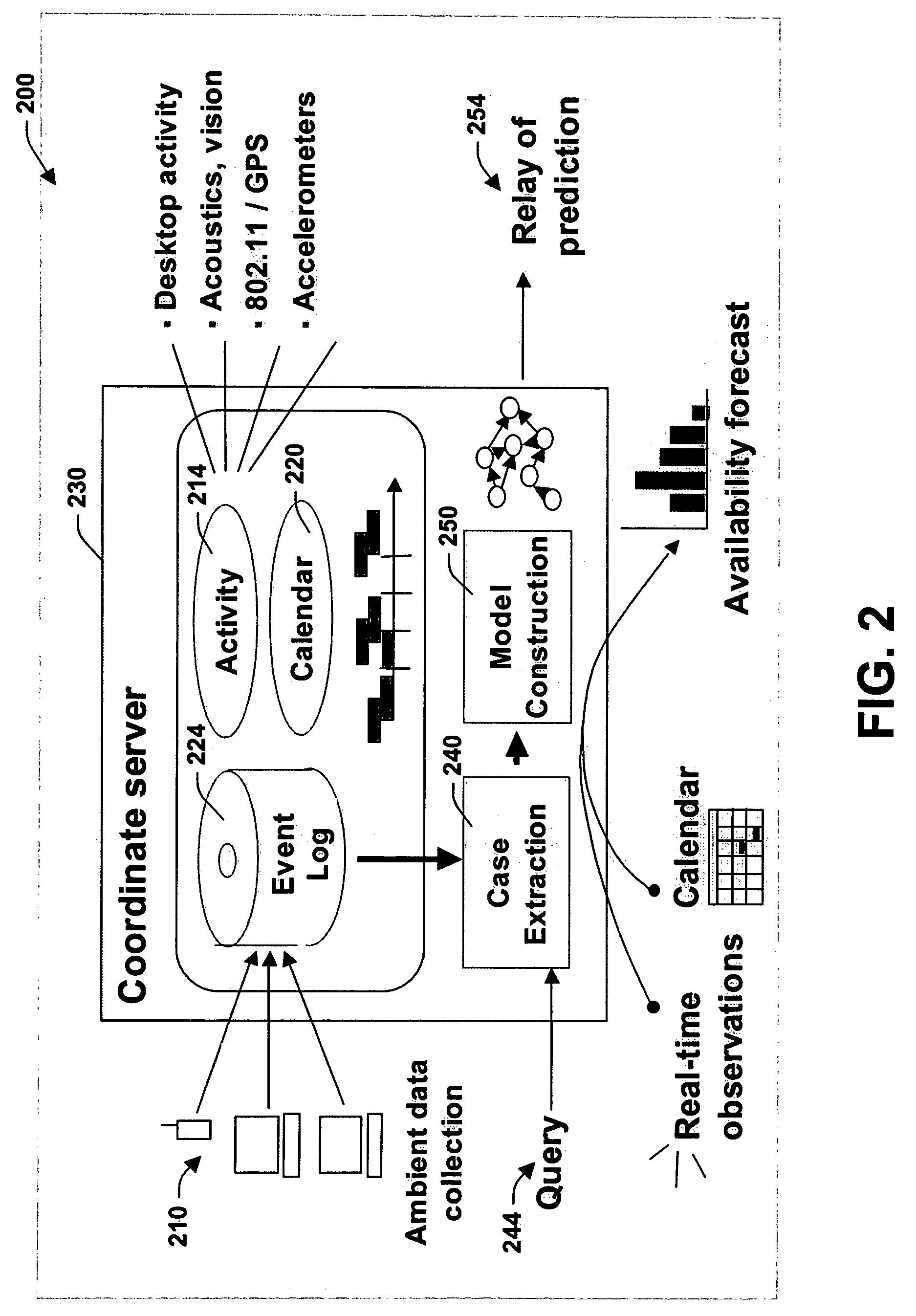Continuous time bayesian network models for predicting users' presence, activities, and component usage
a network model and user technology, applied in adaptive control, process and machine control, instruments, etc., can solve the problems of not always being able to communicate via telephone or other medium, not always being able to automatically generate the indication provided to the message sender when and/or how long it will be before the employee is hired
- Summary
- Abstract
- Description
- Claims
- Application Information
AI Technical Summary
Benefits of technology
Problems solved by technology
Method used
Image
Examples
Embodiment Construction
[0026]The present invention relates to a system and methodology to facilitate collaboration and communications between entities such as between automated applications, parties to a communication and / or combinations thereof. The systems and methods of the present invention include a service (e.g., web service, automated application) that supports collaboration and communication by learning predictive models that employ continuous time Bayesian networks that provide forecasts of one or more users' presence and availability. The predictive models are constructed from data collected by considering user activity and proximity from multiple devices, in addition to analysis of the content of users' calendars, the time of day, and day of week, for example. Various applications are provided that employ the presence and availability information supplied by the models in order to facilitate collaboration and communications between entities.
[0027]Some example applications can include automated ...
PUM
 Login to View More
Login to View More Abstract
Description
Claims
Application Information
 Login to View More
Login to View More - R&D
- Intellectual Property
- Life Sciences
- Materials
- Tech Scout
- Unparalleled Data Quality
- Higher Quality Content
- 60% Fewer Hallucinations
Browse by: Latest US Patents, China's latest patents, Technical Efficacy Thesaurus, Application Domain, Technology Topic, Popular Technical Reports.
© 2025 PatSnap. All rights reserved.Legal|Privacy policy|Modern Slavery Act Transparency Statement|Sitemap|About US| Contact US: help@patsnap.com



